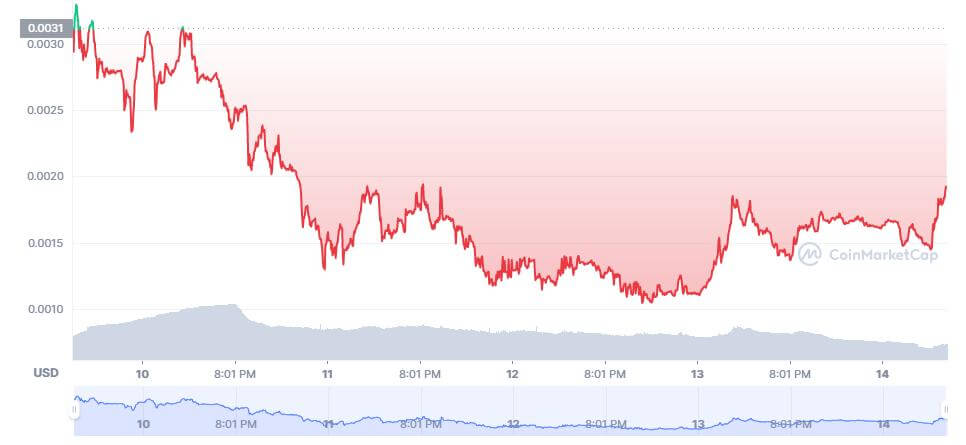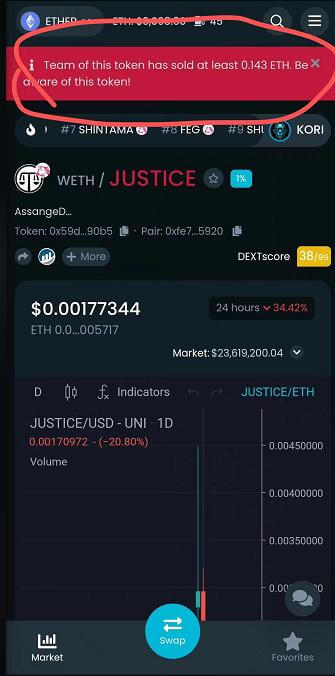On February 9, AssangeDAO became the largest DAO in history, surpassing ConstitutionDAO, after it brought in 17,442 ETH.
AssangeDAO was launched on December 10, supposedly by a group of anonymous cypherpunks, with the intention of helping WikiLeaks founder Julian Assange in his legal defence. To raise funds, Julian Assange partnered with crypto artist Pak to sell a set of NFTs in an online auction from February 7 to 9.
All donors received a token – $JUSTICE – based on the amount of ETH donated that gives them voting rights, including how to employ AssangeDAO’s resources.
However, while AssangeDAO claims to be following in the footsteps of ConstitutionDAO, recent actions by the founding team have divided the community and brought on accusations that the project is a scam.
How AssangeDAO works
The centrepiece of AssangeDAO’s auction was an NFT artwork, Clock, which shows the number of days Assange was imprisoned in white text on a black background.
This is similar to how ConstitutionDAO revolved around bidding on one of the 13 copies of the US Constitution. But it differs in the fact that the Constitution has a real market value, and was (obviously) not de facto created by the DAO’s founding team.
Where the money goes
The founding team is responsible for the distribution and fundraising of AssangeDAO lots. Whoever bids on this NFT received the corresponding funds in $JUSTICE.
Auction Results
Unlike ConstitutionDAO, which returned all funds raised after it lost the auction, AssangeDAO completed all the fundraising and successfully auctioned off their NFT for $53 million.
Although only recently launched, $JUSTICE’s price halved within 24 hours of its release.

Controversy over AssangeDAO
AssangeDAO saw more than 10,000 users making donations. Unlike ConstitutionDAO, which was mostly grassroots activism, many participants bought $JUSTICE tokens as speculation, hoping the price would increase like ConstitutionDAO’s token, PEOPLE.
The dramatic price drop has sparked a lot of buzz in the community. Many donors have become suspicious of the project and its founding team.
Some members even brought a proposal to the AssangeDAO community to bring legal action against the founding team.
They accuse the founding members and The Consensus Unit of AssangeDAO, a group consisting of Jen Robinson (Julian Assange’s lawyer), Gabriel Shipton (Julian Assange’s brother), Stella Moris (Julian Assange’s fiancee), and the community moderators, of violating the initial governance model, AIP 0001, proposed by themselves.
According to the AIP 0001, for every decision made by AssangeDAO, a proposal should first be shared with the forum members. Then, it will be reviewed by the Consensus Unit. If accepted, it will be added to Snapshot, a decentralised voting system, $JUSTICE holders will be able to vote on accepting or rejecting the proposal.
However, the AIP 0001 was not applied during the very first execution of AssangeDAO.
The project’s team announced on AssangeDAO’s official discord that there would only be one round of donations. However, immediately after the first fundraising round, they opened a second round.
Assange’s brother (also the founding member) proposed a max bid of the entire treasury on the Clock NFT (16,593 ETH) in the community, which most members objected to (since there were few bidders). But the community simply ignored the objections, and AssangeDAO’s multi-signer drove the price up to the maximum.
After the auction ended, the project operator also made an official announcement of the founding team’s withdrawal from AssangeDAO.
And, according to Dextools, a trading assistant focused on decentralised exchanges, the project operator is selling their $JUSTICE tokens, fuelling anger in the community.

Several suggestions have been proposed to the AssangeDAO community.
- Use Snapshot for community proposals.
- AssangeDAO and WikiLeaks co-manage the Assange Foundation and contribute together to save Assange.
- Ask Juicebox to refund the money and return 5% of the processing fee to DAO.
In the AssangeDAO community, there was a proposal to legally sanction the founding team. However, opinions and votes are divided – with 45.53% voting yes, and 54.47% no. Some community members believe that, regardless of the purpose of the founding team, the JUSTICE token, as a representative of justice, has its symbolic consensus of justice. The community is still looking forward to its price recovery.
Summary
AssangeDAO offered the prospect of donating to a just cause for some. The project even saw Vitalik Buterin make a donation, which caused many people to dive in just to follow a KOL, leading to nearly 5,000 ETH in donations to flow in after he posted it on Twitter. As an investment, the project clearly is not working out, highlighting the problems of mixing up activist DAOs with for-profit investing.
What is Footprint?
Footprint Analytics is an all-in-one analysis platform to visualise blockchain data and discover insights. It cleans and integrates on-chain data so users of any experience level can quickly start researching tokens, projects, and protocols. With over a thousand dashboard templates plus a drag-and-drop interface, anyone can build their customised charts in minutes. Uncover blockchain data and invest smarter with Footprint.
Footprint Website: https://www.footprint.network
Discord: https://discord.gg/3HYaR6USM7
Twitter: https://twitter.com/Footprint_DeFi
Telegram: https://t.me/joinchat/4-ocuURAr2thODFh
Youtube: https://www.youtube.com/channel/UCKwZbKyuhWveetGhZcNtSTg
Disclaimer: The views and opinions expressed by the author should not be considered as financial advice. We do not give advice on financial products.
